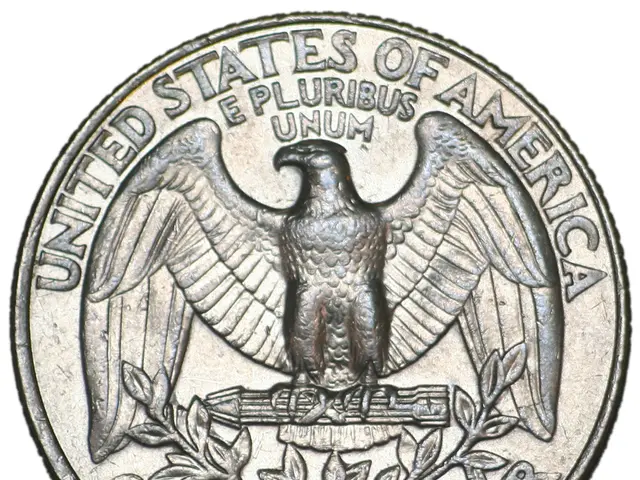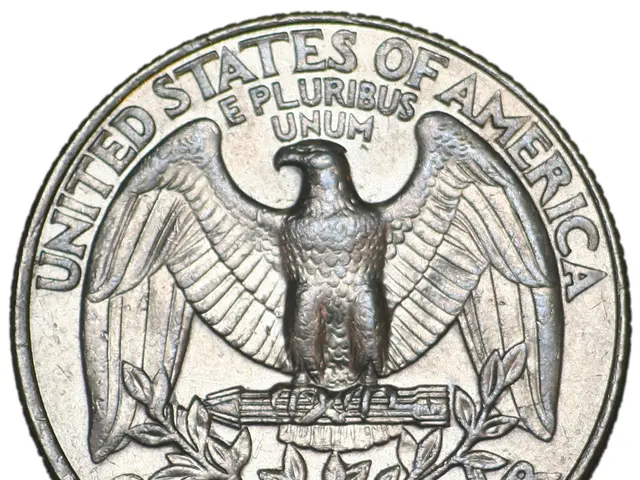Reduction in interest rates: Impact on homeowners explained
**Impact of the Bank of England's Interest Rate Cut: Boost for UK Real Estate, Small Businesses, and Homeowners**
A significant decision by the Bank of England to cut interest rates is set to bring relief to several sectors, particularly the UK real estate market, small businesses, and homeowners. The interest rate, currently at 4.25%, is expected to decrease to 3.75% by the end of 2025.
In the real estate market, lower interest rates will make home purchases more affordable, potentially increasing demand and boosting property prices. However, the extent of the boost will depend on the pace and magnitude of rate cuts, economic confidence, and broader macroeconomic conditions. A gradual easing may prevent a sudden surge in prices but could contribute to a recovery in transaction volumes.
For small businesses, lower interest rates will reduce the cost of borrowing, benefiting those with variable-rate loans or seeking new credit for expansion or working capital. However, the overall impact is nuanced, with weak GDP growth and moderating pay growth potentially limiting the immediate upside for small businesses, especially those dependent on consumer spending.
Homeowners with variable-rate or tracker mortgages will see immediate benefits from lower monthly payments as interest rates fall. This could provide financial relief for households squeezed by previous rate hikes, potentially boosting consumer confidence and disposable income. Homeowners with fixed-rate mortgages will benefit only at renewal, as lenders are expected to pass on lower rates over time.
The following table summarises the expected impacts by sector:
| Sector | Positive Impacts | Risks & Limitations | |-----------------------|-----------------------------------------------|--------------------------------------------| | Real Estate | Increased affordability, demand, and prices | Dependent on economic confidence and pace of cuts | | Small Businesses | Lower borrowing costs, easier access to credit| Weak GDP growth may offset benefits | | Homeowners | Lower mortgage payments (variable/tracker), improved remortgage prospects | Fixed-rate holders benefit only at renewal |
The Bank of England's decision comes after recent GDP data recorded 0% growth, and the MPC has downgraded its forecasts for growth, projecting that GDP fell 0.1% in the fourth quarter of 2024 and will only rise by 0.1% in the first quarter of the year.
Pierre Roke, analyst at Validus Risk Management, has indicated that inflation is forecast to remain above target throughout 2025, potentially indicating a threat of stagflation. This could moderate the positive effects of the interest rate cut.
Attention now turns to Andrew Bailey, who may face increased scrutiny regarding Trump and his recent announcements. A more stable rate environment could help restore buyer confidence, particularly among those who had been waiting for clarity before entering the market.
Daniel Austin, CEO and co-founder of ASK Partners, remains optimistic about the UK real estate market despite the negative outlook. Heightened demand, particularly in sectors like co-living and build-to-rent, where supply constraints continue to drive investor interest, could offset some of the potential challenges posed by the economic climate.
The Bank of England's Monetary Policy Committee (MPC) has reduced interest rates to 4.5%, adding a dovish spin to the meeting, resulting in a weaker sterling. Two members of the MPC encouraged a bigger reduction, suggesting a vote of 7-2 in favor of the 25 basis point cut.
For homeowners and prospective buyers, lower interest rates should, in theory, make mortgages more affordable. This is the third reduction in interest rates since August 2022, when they reached a peak of 5.25%. Homeowners may see a decrease in their monthly remortgage payments, with a typical £300,000 mortgage seeing a fall of around £43 per month.
In the context of the Bank of England's interest rate cut, the reduction in interest rates will benefit homeowners with variable-rate or tracker mortgages by providing financial relief through lower monthly payments. This could also influence small businesses, as lower interest rates will reduce the cost of borrowing for those with variable-rate loans or seeking new credit for expansion or working capital. However, the overall impact on the economy, real estate market, and small businesses depends on various factors such as economic confidence, GDP growth, consumer spending, and the pace of rate cuts. The table summarizing the expected impacts by sector highlights these dependencies.




